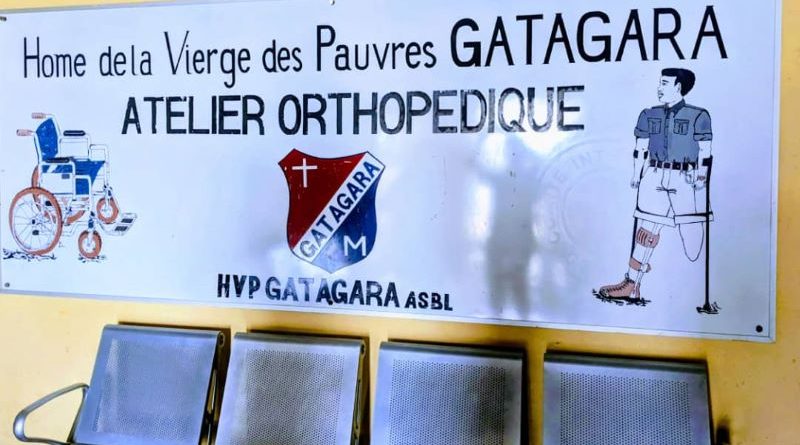Persons with disabilities struggle to access prosthetic and orthopedic services at HVP Gatagara
Some people with disabilities who go to seek services from HVP Gatagara Hospital in Nyanza District a specialized health facility renowned for rehabilitating persons with physical disabilities say they are still struggling to afford medical services.
They explain that although the hospital provides essential services such as physiotherapy, prosthetics, and orthopedic support devices, the costs are very high and community-based health insurance (Mutuelle de Santé) does not cover them. This leaves many without proper treatment or the assistive devices they need to live independently.
Patients Speak Out

Marie Jeanne Nyirandayisaba, a patient who came to Gatagara for orthopedic treatment
Marie Jeanne Nyirandayisaba, a patient who came to Gatagara for orthopedic treatment and currently walks with crutches, says the number of physiotherapy sessions given is limited. Sometimes patients are sent home before full recovery because they cannot afford more sessions
She added that prosthetics and orthopedic devices are charged at high rates, which are only affordable to those with money. Poor patients, on the other hand, are left to suffer since Mutuelle does not pay for these services.
“What we ask is that physiotherapy sessions be increased because when they are too few, you may go home before you are healed. Sometimes they only give you 20 days. Yes, Mutuelle works for some services, but here we are charged excessive fees. Another big challenge is that prosthetics are not covered by Mutuelle. We really need the government to act on this.”
Hospital Management Explains

Isaac Rukundo, head of the prosthetics and orthopedics unit at HVP Gatagara
Isaac Rukundo, head of the prosthetics and orthopedics unit at HVP Gatagara, confirmed that while the hospital has skilled staff and good equipment, the lack of insurance coverage is the biggest barrier for patients.
“It is disheartening to witness patients being discharged from hospitals before they have fully recovered. When a patient is released without having the financial means to continue treatment, their condition often worsens instead of improving, creating the impression that no medical care was ever provided.”
Rukundo stressed that the lack of coverage does not only affect individual patients but also the country’s overall development.
“When people receive proper treatment, families and the whole country benefit. But now, many are stuck at home unable to walk, go to school, trade, or support their families simply because they cannot afford prosthetics or therapy.”

@www.pureafricanews.com/Aline Nyampinga




